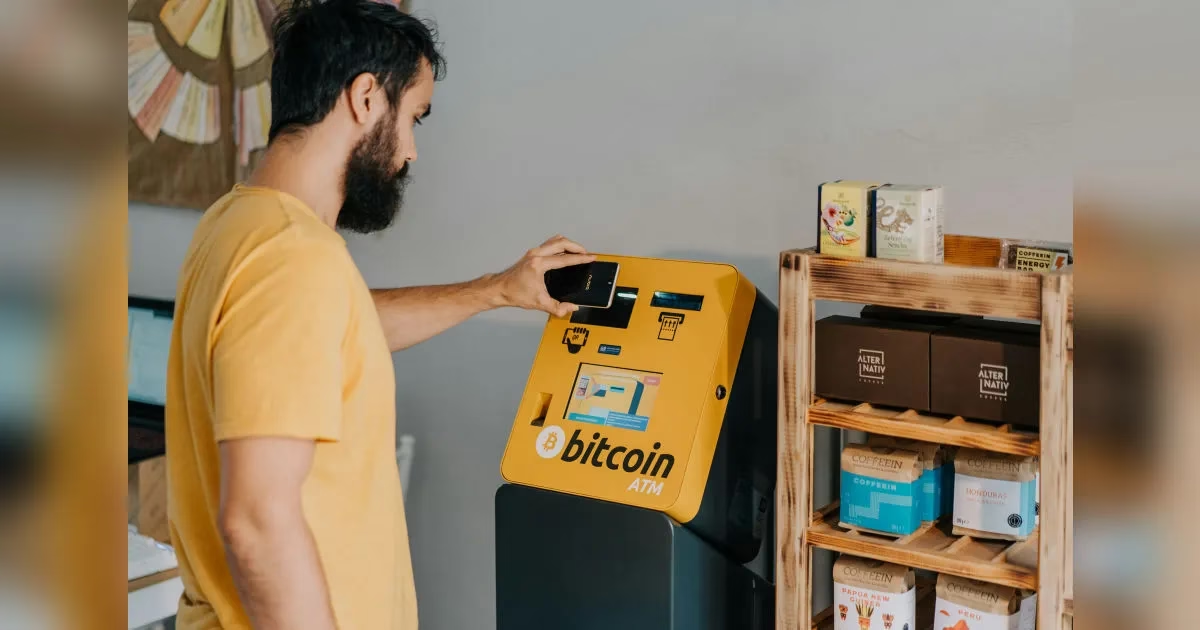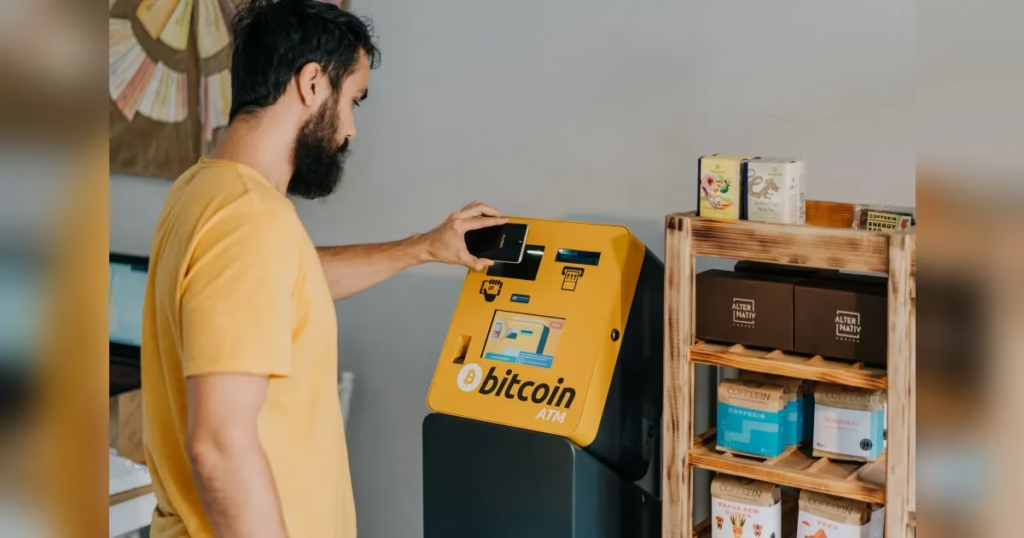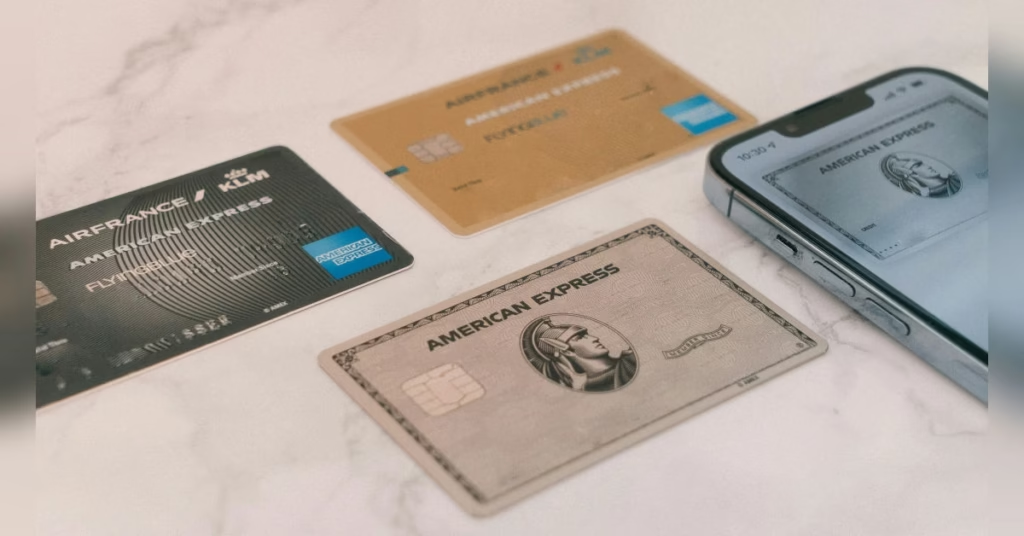Introduction: The Rise of Cryptocurrency ATM Fraud
Cryptocurrency ATMs, also known as crypto kiosks, have seen explosive growth in the United States and globally. These machines allow users to buy and sell digital currencies like Bitcoin, Ethereum, and other altcoins using cash or debit cards. Their convenience has made them increasingly popular, especially for individuals who want quick access to cryptocurrencies without going through online exchanges.
However, this rise has also created opportunities for fraudsters. According to the Federal Trade Commission (FTC), complaints about cryptocurrency-related scams have increased by over 60% in the past two years, with many victims losing thousands of dollars. (FTC Consumer Alerts)
Crypto ATMs are particularly vulnerable because:
- Transactions are instant and irreversible
- Machines are often located in unsupervised areas, making monitoring difficult
- Many users lack awareness of potential scams
These factors make cryptocurrency ATMs a prime target for scammers who use psychological manipulation to trick victims into transferring money.
📈 Statistics Highlighting the Issue
- AARP reports that seniors over 60 account for more than two-thirds of reported losses from crypto ATM scams.
- DFPI (California Department of Financial Protection and Innovation) noted a 40% increase in crypto ATM fraud complaints in 2024, indicating that fraudsters are increasingly targeting unsuspecting consumers. (DFPI Crypto Scams)
This alarming trend prompted new consumer protection laws across multiple U.S. states to regulate crypto ATM operations, enforce transaction limits, and require operator accountability.
Related : Best American Express Credit Cards in the USA 2025: Rewards, Travel & Cashback
Table of Contents
Table of Contents
🏛️ Understanding Cryptocurrency ATM Fraud
🔍 How the Scam Works
Fraudsters often employ multiple tactics to trick victims into sending cryptocurrency through ATMs:
- Impersonation Scams – Scammers pose as government officials, IRS agents, or tech support staff, claiming that the victim owes money or is under investigation.
- Family or Emergency Scams – Criminals claim a family member is in danger or in legal trouble, demanding immediate cryptocurrency payment via ATM.
- Investment Scams – Promising high returns, scammers convince victims to “invest” in fake crypto schemes using ATMs.
Once the victim deposits cryptocurrency into the scammer’s wallet, recovery is nearly impossible, because blockchain transactions are irreversible and anonymous.
⚠️ Common Warning Signs
- Unsolicited Contact: Receiving unexpected phone calls, emails, or messages demanding immediate action.
- High Pressure Tactics: Urgency or threats, e.g., “Pay now or face legal action.”
- Request for Crypto Transfers: Instructions to send funds via a cryptocurrency ATM instead of traditional payment methods.
🧩 Case Study: Recent Crypto ATM Fraud
In 2024, a California resident lost $25,000 after a scammer impersonated an IRS agent. The victim was told they owed taxes and instructed to pay using Bitcoin via a local ATM. By the time the victim realized it was a scam, the funds had already been transferred to an untraceable wallet.
New Consumer Protection Laws
The surge in cryptocurrency ATM fraud has prompted several states to enact legislation aimed at protecting consumers. These laws impose regulations on crypto ATM operators to ensure transparency, accountability, and consumer safety.
📜 Arizona’s Cryptocurrency Kiosk License Fraud Prevention Law (HB 2387)
In May 2025, Arizona enacted HB 2387, the Cryptocurrency Kiosk License Fraud Prevention Law, to combat the rising tide of crypto ATM scams. Effective from September 26, 2025, the law introduces several consumer protection measures:
- Transaction Limits: New customers are limited to a daily transaction cap of $2,000, while existing customers can transact up to $10,500 per day. (AZAG)
- Refund Protections: Operators are required to issue full refunds, including fees, to new customers who report fraudulent transactions within 30 days. (AZAG)
- Mandatory Warnings: Kiosks must display clear warnings about the irreversibility of crypto transactions, and customers must acknowledge these warnings before proceeding. (AZAG)
- Anti-Fraud Policies: Operators must implement written anti-fraud policies, including measures to detect and prevent fraud, and comply with federal Know Your Customer (KYC) and Anti-Money Laundering (AML) laws. (LegiScan)
These measures aim to reduce the incidence of fraud and enhance consumer trust in cryptocurrency transactions.
🏛️ Illinois’ Digital Assets and Consumer Protection Act (SB 1797)
On August 18, 2025, Illinois Governor JB Pritzker signed Senate Bill 1797, the Digital Assets and Consumer Protection Act, into law. This legislation establishes a comprehensive regulatory framework for digital assets and crypto ATMs:
- Regulatory Oversight: The Illinois Department of Financial and Professional Regulation (IDFPR) is empowered to regulate digital asset exchanges and other digital asset businesses operating in the state. (IDFPR)
- Consumer Protections: The law mandates that crypto ATM operators provide clear disclosures about transaction fees, risks, and the irreversibility of transactions. (IDFPR)
- Fraud Prevention: Operators are required to implement measures to detect and prevent fraud, including the establishment of anti-fraud policies and compliance with federal KYC and AML regulations. (IDFPR)
This legislation aims to protect consumers from fraud and ensure the integrity of digital asset transactions in Illinois.
🌽 Nebraska’s Controllable Electronic Record Fraud Prevention Act (LB 609)
Nebraska’s LB 609, effective September 2, 2025, introduces several safeguards to combat crypto ATM fraud:
- Licensing Requirements: Crypto ATM operators must obtain a license issued by the Nebraska Department of Banking and Finance. (Nebraska Banking and Finance)
- Transaction Limits: The law imposes daily transaction limits of $2,000 for new customers and $10,500 for existing customers. (Nebraska Examiner)
- Fraud Warnings: Operators are required to display warnings about the potential for fraud and provide information on how to report suspicious activity. (Nebraska Examiner)
- Refund Policies: The law mandates that operators issue refunds for fraudulent transactions reported within 30 days, with full refunds for new customers and transaction fee refunds for returning users. (Silicon Prairie News)
These measures aim to protect consumers from crypto ATM scams and enhance the security of digital asset transactions in Nebraska.
🧭 Implementation and Enforcement
The effectiveness of these laws depends on their implementation and enforcement:
- Operator Compliance: Crypto ATM operators must adhere to licensing requirements, transaction limits, and anti-fraud measures.
- Consumer Awareness: Consumers should be educated about the risks of crypto ATM scams and the protections available under state laws.
- Regulatory Oversight: State agencies are responsible for monitoring compliance, investigating complaints, and taking enforcement actions against violators.
While these laws represent significant steps toward protecting consumers, ongoing efforts are needed to address emerging threats and ensure the integrity of cryptocurrency transactions.
How to Protect Yourself from Cryptocurrency ATM Fraud

✅ Steps to Safeguard Against Fraud
Cryptocurrency ATM scams often rely on psychological manipulation and urgency, so the best defense is knowledge and caution. Here’s a comprehensive guide on protecting yourself:
1. Verify the Source
- Always confirm any claims made over phone, email, or text.
- Scammers often impersonate government officials, banks, or family members.
- Use official websites or verified phone numbers to verify requests.
Example: In 2024, a victim in Illinois received a call claiming the IRS was auditing them. The scammer instructed the victim to pay using a local Bitcoin ATM. By contacting the official IRS hotline, the victim confirmed it was a scam and avoided losing thousands of dollars.
2. Pause and Reflect
- Never act immediately under pressure.
- Scammers create a sense of urgency to prevent rational decision-making.
- Take time to discuss with trusted friends, family, or financial advisors.
Tip: If a caller insists on immediate payment via cryptocurrency, it is almost certainly a scam. Legitimate agencies will never demand instant crypto payment.
3. Recognize Red Flags
Be alert for warning signs such as:
- Unsolicited contact or messages
- Threats of arrest, fines, or legal action
- Requests for cryptocurrency payments via ATMs
- Promises of high returns on crypto investments
By recognizing these signs early, you can avoid falling victim to scams.
4. Use Trusted Crypto Platforms
- Whenever possible, use reputable online exchanges instead of cash ATMs.
- Trusted platforms offer security measures, transaction monitoring, and fraud alerts.
Examples of Reputable Platforms:
- Coinbase (coinbase.com)
- Binance US (binance.us)
- Kraken (kraken.com)
5. Enable Two-Factor Authentication (2FA)
- Add an extra layer of security on crypto wallets and exchange accounts.
- Even if scammers obtain your login credentials, 2FA prevents unauthorized access.
Tip: Use an authenticator app rather than SMS for stronger security.
6. Be Cautious with Personal Information
- Never share sensitive information like social security numbers, passwords, or private wallet keys.
- Scammers often attempt to gather personal info to access funds or commit identity theft.
7. Report Suspicious Activity Immediately
- Federal Trade Commission (FTC): Report Fraud
- State Consumer Protection Agencies: Each state has offices handling crypto scams (e.g., California DFPI, Illinois IDFPR).
- Local Law Enforcement: File police reports for large financial losses.
Example: A New York resident reported a $5,000 Bitcoin ATM scam to the NY Department of Financial Services. Swift action led to freezing the scammer’s wallet and recovering partial funds.
Check Our Finance Category : FINANCE
🧓 Special Considerations for Older Adults
- Seniors are more susceptible to crypto scams due to lack of digital literacy.
- Organizations like AARP provide guides and hotlines to educate older adults. (AARP Crypto Scam Tips)
- Tip: Encourage seniors to consult trusted family members before using cryptocurrency ATMs.
📊 Statistics on Fraud Prevention
- AARP reports that seniors who attended fraud awareness programs were 60% less likely to fall victim to crypto ATM scams.
- States that implemented consumer protection laws saw a 30–50% reduction in reported scams within the first six months.
🛡️ Additional Safety Measures
- Only use ATMs in secure, public locations.
- Keep transaction receipts and wallet addresses for reference in case of disputes.
- Check for license and compliance information posted on the ATM. Legitimate kiosks display licensing and anti-fraud certifications.
Cryptocurrency ATM fraud can be confusing, so this FAQ section addresses the most common questions. These FAQs are optimized for SEO and include clear, concise answers for readers.
❓ What is a cryptocurrency ATM?
A cryptocurrency ATM (also called a crypto kiosk) is a machine that allows users to buy or sell digital currencies such as Bitcoin, Ethereum, or Litecoin using cash or debit cards. Unlike online exchanges, crypto ATMs provide immediate transactions, making them convenient but also vulnerable to fraud.
More From Us :Nike Stock Soars on Earnings Beat 2025: Can the Turnaround Last?
❓ How does cryptocurrency ATM fraud occur?
Fraudsters use several methods, including:
- Impersonation scams: Pretending to be government officials, law enforcement, or company representatives.
- Family emergency scams: Claiming that a relative is in urgent trouble and demanding cryptocurrency payment.
- Investment scams: Offering high returns through fake cryptocurrency investments.
Key point: Once cryptocurrency is sent to a scammer’s wallet, the transaction cannot be reversed.
More Article : 6 Smart Investments Every Boomer Needs for a Secure Solo Retirement
❓ Are cryptocurrency ATM transactions reversible?
No. Unlike traditional banking, cryptocurrency transactions are final. Once funds are transferred to a wallet, they cannot be recovered unless the recipient voluntarily returns them. This is why scammers often target ATMs—the funds are untraceable and immediate.
❓ How can I report a cryptocurrency ATM scam?
- Federal Trade Commission (FTC): reportfraud.ftc.gov
- State consumer protection offices: For example:
- California DFPI: dfpi.ca.gov
- Illinois IDFPR: idfpr.illinois.gov
- Local law enforcement: Always file a police report for record and follow-up.
Tip: Reporting quickly increases the chance of freezing funds or preventing further fraud.
More From Us : How to Get Approved for a Car Loan in the USA with Bad Credit
❓ Who is most at risk for cryptocurrency ATM scams?
- Older adults (60+) are disproportionately targeted. According to AARP, seniors report two-thirds of crypto ATM losses, often due to lack of awareness about scams.
- New cryptocurrency users who are unfamiliar with wallet operations, transaction irreversibility, or safe practices.
❓ What are the new consumer protection laws for crypto ATMs?
Recent laws in several states aim to protect consumers:
- Transaction limits: Daily caps for new and existing customers.
- Mandatory warnings: Kiosks must alert users that transactions are irreversible.
- Refund requirements: Operators must refund victims of fraud reported within a set period.
- Operator accountability: Kiosk operators must implement anti-fraud policies and comply with KYC/AML regulations.
Example: Arizona’s HB 2387 mandates full refunds for new customers who report fraud within 30 days.
❓ How can I protect myself from cryptocurrency ATM fraud?
- Verify the source of any requests for payment.
- Avoid acting under pressure or urgency.
- Recognize red flags such as unsolicited contact or threats.
- Use reputable online exchanges instead of ATMs when possible.
- Enable two-factor authentication (2FA) on wallets.
- Keep personal information private and never share wallet keys.
- Report suspicious activity immediately to authorities.
❓ Are there organizations that help educate consumers about crypto scams?
Yes. Several organizations provide resources:
- AARP: Guides and hotlines for seniors (states.aarp.org)
- Federal Trade Commission (FTC): Consumer alerts and scam reporting (consumer.ftc.gov)
- State financial regulators: DFPI (California), IDFPR (Illinois), NDBF (Nebraska)
❓ Can victims get their money back?
- Partial recovery is possible if reported quickly and if the scammer can be traced.
- New consumer protection laws increase the likelihood of refunds, especially for first-time victims.
- Important: Recovery is generally difficult due to the irreversible nature of cryptocurrency transactions.
❓ Are crypto ATM scams covered by insurance?
- Most personal insurance policies do not cover cryptocurrency losses.
- Only specialized cryptocurrency insurance providers may cover certain digital asset losses.
- Consumers should always take preventative measures, as insurance coverage is rare.
❓ How can I verify a crypto ATM operator’s legitimacy?
- Look for licenses and compliance information displayed on the machine.
- Check state regulators’ websites to confirm registration.
- Operators should follow KYC/AML regulations and anti-fraud policies.
Conclusion and Final Thoughts
🏁 Summary of Cryptocurrency ATM Fraud
Cryptocurrency ATM fraud has emerged as a significant threat in the digital currency ecosystem. Fraudsters exploit the irreversibility of crypto transactions, lack of supervision, and the trust that consumers place in these convenient kiosks. Common scams include:
- Impersonation of government officials or companies
- Family or emergency scams demanding crypto payments
- Fake investment opportunities promising high returns
Statistics highlight that older adults and new crypto users are particularly vulnerable. For example, AARP reports that seniors over 60 account for more than two-thirds of losses from crypto ATM scams, emphasizing the need for awareness and education.
🛡️ The Role of New Consumer Protection Laws
In response, several U.S. states have enacted strong consumer protection legislation for crypto ATMs:
- Arizona (HB 2387): Daily transaction limits, mandatory warnings, refund policies, and anti-fraud measures.
- Illinois (SB 1797): Licensing, disclosure of transaction fees, and regulatory oversight.
- Nebraska (LB 609): Licensing, transaction caps, fraud warnings, and refund policies.
These laws aim to reduce fraud, enhance consumer trust, and increase transparency in crypto ATM operations. They also serve as models for other states considering similar legislation.
🧭 Key Takeaways for Consumers
- Stay vigilant: Always verify requests for payments or personal information.
- Pause before acting: Avoid impulsive decisions under pressure.
- Recognize red flags: Unsolicited contacts, threats, or requests for crypto payments are clear warning signs.
- Use trusted platforms: Reputable exchanges provide better security than ATMs.
- Report suspicious activity immediately: Quick action increases the chance of recovery.
By following these steps, consumers can significantly reduce the risk of falling victim to cryptocurrency ATM scams.
📊 The Importance of Education and Awareness
Education is critical in combating crypto ATM fraud. Organizations such as AARP, FTC, and state financial regulators provide guides, hotlines, and online resources. Consumers are encouraged to:
- Attend fraud awareness workshops
- Consult trusted family members or financial advisors before using crypto ATMs
- Stay updated on new laws and regulations affecting cryptocurrency transactions
Informed consumers are less likely to be victims, and law enforcement can act more effectively when fraud is promptly reported.
🔗 Final Thoughts
Cryptocurrency ATMs offer convenience and access to the digital currency world, but they also pose real risks. The combination of consumer vigilance, education, and strong legal protections forms the best defense against fraud.
With the new consumer protection laws in states like Arizona, Illinois, and Nebraska, the landscape is improving. These laws are designed to protect users, prevent losses, and hold operators accountable. However, consumers must continue to exercise caution, verify transactions, and report suspicious activity.
Check Our All Category :
✅ Call to Action
- Check your local crypto ATM regulations before making transactions.
- Educate yourself and family members about scam tactics.
- Report fraud immediately to federal and state authorities.
- Stay informed on emerging trends in cryptocurrency and fraud prevention.
By combining awareness, caution, and legal protections, consumers can confidently navigate the world of cryptocurrency ATMs while minimizing risk.
Harsh Muchhal is a Software Engineer and Financial Analyst passionate about helping people understand the world of finance and technology in simple, practical ways. With experience in both software development and financial analysis, he blends technical knowledge with real-life money insights to make complex topics easy for everyone. Harsh shares valuable guides, tips, and updates on personal finance, investing, credit cards, and the latest tech innovations — helping readers make smarter choices in today’s fast-changing digital world.


